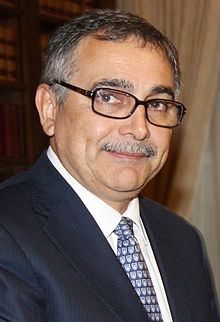As
communication is key to a successful marriage, so it is with family planning
uptake among couples.
Conversely,
lack of communication has often been linked to misunderstanding in
relationships. Family planning, otherwise known as contraception, refers to the
diverse methods and techniques whereby couples can determine the number of
children they want to have and when.
Evidence
has shown that many factors hinder rapid uptake of family planning by couples,
due to lack of communication in the home.
Some
of them include: myths and misconceptions on initiating use of traditional and
modern methods of contraceptives.
Many
couples are in relationships where it is commonly believed that the man being
the head of the family dictates the tune with regards to taking key decisions
in the home. For instance, if the man does not approve of any family planning
method, the wife would have an uphill task convincing him on thinking
otherwise.
Based
on such differences, some women in marriage/relationships have gone behind their
spouses and adopted family planning method without their knowledge, have often
created mistrust which regularly leads to conflicts in homes. In one of such
experiences which occurred in Lagos State recently, a man, names withheld,
suddenly found out that his wife had adopted an implant, which is a
hormone-based and highly effective contraceptive device.
The
typical implant is a small flexible tube measuring about 40mm in length and is
inserted under the skin (typically in the upper arm) by a health care
professional. It prevents pregnancy by releasing hormones that prevent ovaries
from releasing eggs and thickens cervical mucous.
After putting pressure on the
woman, she confessed to him, explaining that she wanted to space their children
to enable her regain her health and then continue with her job. Besides
considering the dangers of too frequent pregnancies, the woman also considered
the burden of combining another pregnancy with her job, which she envisaged
would be quite unbearable for her and might even make her lose her job that is
so difficult to get these days.
Unfortunately,
in all the woman’s explanations, her husband refused to see reasons with her
just because he was not involved from the beginning when the decision was taken
by his wife to have a family planning and during the process when the woman was
counselled on the method to use.
Though
the man in anger demanded that the healthcare provider that administered the
implant on her should remove it, to the consternation of his wife, this misunderstanding
could have been avoided if the couple had a collective decision on the issue
which could only be achieved through effective communication.
This
experience plays out in most Nigerian homes, often resulting in conflicts,
separation and in extreme cases, divorce. However, it can be effectively
addressed through constant engagement and communication among couples. This is
because, embracing family planning methods and using them correctly after
proper counselling is more important than the conflict. Rather, it should
be a measure to unite couples.
Experts
say family planning gives individuals and couples the opportunity to have the
number of their desired children, the spacing and timing of their births and
this can be achieved through the use of contraceptive methods.
A
Family Planning expert, Dr. Ejike Orji, believes that dialogue is very
important when a spouse in a relationship plans to adopt family planning.
According to him, any woman going ahead to do things that her husband do not
like would not get his support and this may result into unnecessary conflict,
whereas, the aim of using family planning was bonding in families.
It
is obvious that a wide range of family planning options are available nowadays
with their potential benefits. It, therefore, behooves on the woman who is
initiating the subject of family planning to her husband to find a way to open
conversation on the issue.
For
instance, such a woman should find out what her husband thinks and says about
it; and how he might relate with her on this issue. In conclusion, it is clear
that a woman discussing family planning with her husband, would bring the
partner to the same level on which she is, and this measure could pave way for
the couple to be on the same page.
While
on the same page, the woman should remember to consult a trained healthcare
provider who can help her make the best choice tailored towards meeting her own
unique needs.
*Courtesy: Media for Health Advocacy
... Linking agrobiz, sustainable environs, people & technology










